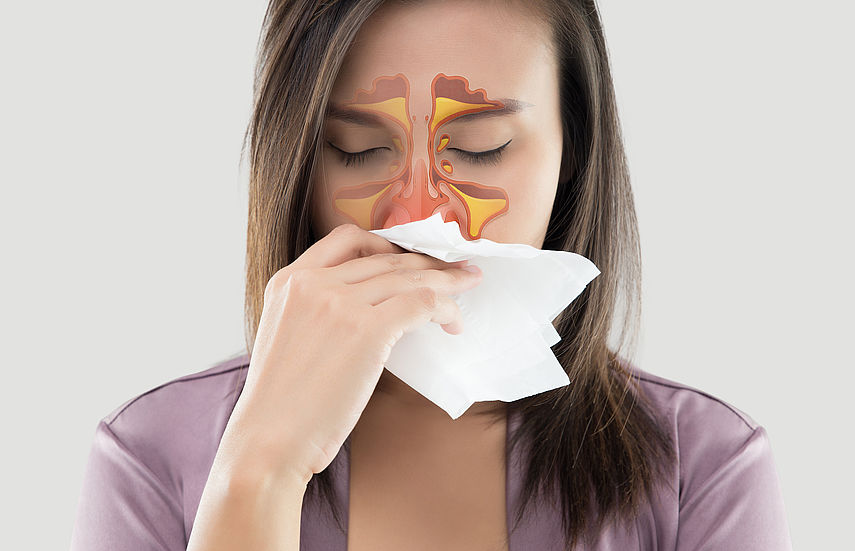
Sinusitis, also known as sinus infections, refers to the inflammation of the tissue lining the sinus. The tissue lining may become swollen as a result of the infection. The sinuses are the spaces inside the nose responsible for mucus production, which is vital for keeping the nose moist, hence trapping dust and other particles. A more significant percentage of those with acute sinus infections do not often need to see a doctor. However, it would be best to see a doctor in case of a sinus infection in Gilbert if the symptoms persist for an extended period. Worsening the symptoms may also necessitate a need to visit the doctor as soon as possible.
What are the Symptoms of Sinusitis?
Some of the most frequent symptoms of sinus infections include:
- Thick green or yellow mucus from the back of the throat or nose
- Congested nose, making breathing a challenging task
- Pain, tenderness, and swelling around the eyes and cheeks
- Reduced sense of smell
- High temperature
- Fatigue
- Fever
In young children, the symptoms may include, but are not limited to, difficulty when it comes to feeding and irritable displays.
What Are the Common Causes of Sinusitis?
Some of the common causes and conditions that can lead to sinus blockage include:
- The common cold, which is caused by a virus and can lead to bacterial infections
- Presence of small growths in the lining of the nose
- Swelling of the lining of the nose as a result of allergens
However, some risk factors may cause some individuals to be at a higher risk of getting sinusitis. These include:
- Exposure to smoke or smoking
- Hay fever or allergic conditions
- Immune disorders like AIDS
Types of Sinus Infections
There are several types of sinus infections that can affect an individual, such as:
- Acute Sinusitis – This type often starts with symptoms similar to the common cold. The affected person may display a runny nose and have pain in the face. The infection can last for about two to four weeks.
- Sub-acute sinusitis – This type is less severe than acute sinusitis and often lasts for about four to twelve weeks.
- Recurrent sinusitis – these infections tend to occur a few times in a year.
- Chronic sinusitis – The symptoms associated with this type can last for more than twelve weeks.
Are Home Remedies Available?
Mild cases of sinusitis can be easily treated at home without having to see a doctor. You can:
- Drink lots of fluids to prevent dehydration
- Get a lot of rest
- Avoid allergic triggers
- Avoid smoking
- Take painkillers
- Rinse your nasal cavity with salty water to ease congestion in the nose.
However, when the symptoms do not clear after a long time, it would be best to see a doctor or pharmacist soon. A doctor will advise on the best type of medications to take, such as:
- Decongestant nasal drops or sprays to clear up the nasal cavity.
- Antihistamines to alleviate allergic reactions.
- Antibiotics to deal with bacterial infections.
How Can You Prevent Sinusitis?
The following measures can help you reduce the risk of sinus infections:
- Use a humidifier at home to keep the air moist.
- Keep your allergies under check.
- Quit smoking and avoid areas with polluted air.
If the sinus infections keep recurring, your doctor may recommend surgery to clean and drain the sinuses. Untreated sinus infections can cause meningitis or even bone infections. It is essential to seek treatment to avoid more severe complications.